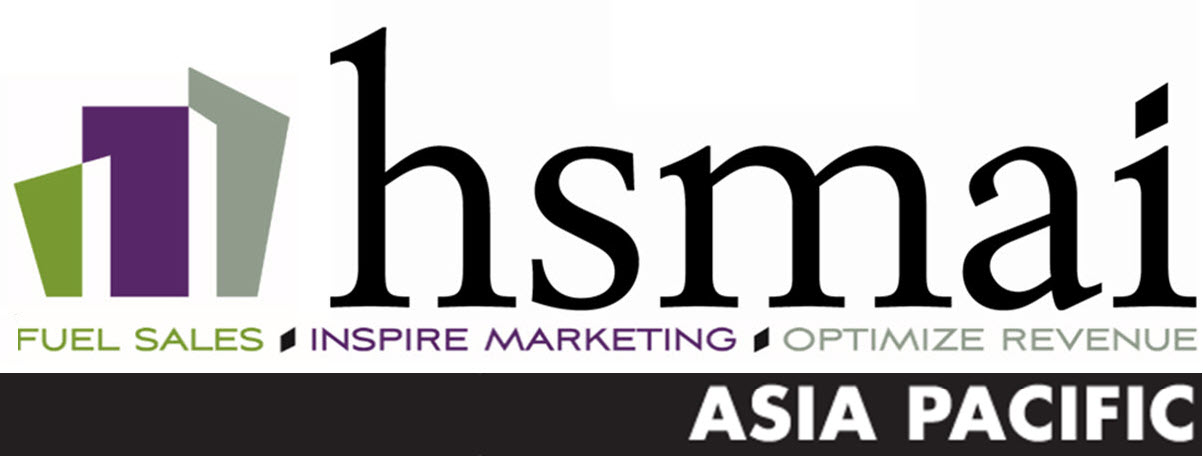
Navigating the Future of Hospitality: Insights from General Managers and Industry Leaders
12th October, 2023, Delhi NCR, India.
The future of the Indian Hospitality industry came sharply into focus during the HSMAI Roundtable held in Delhi, NCR on the 12th October, 2023. Local hotel General Managers and commercial leaders shared a wealth of insights and experiences, providing valuable perspectives on the evolving landscape of the hospitality sector in India. The Indian hospitality industry is undergoing a seismic transformation driven by shifting consumer preferences and dynamic market trends. For hoteliers and general managers, this presents a golden opportunity to not only adapt but to thrive in this dynamic landscape. We have listed the areas of concern and opportunity, and added some tips from this esteemed group of hoteliers.
Demand vs. Supply Dynamics
One notable viewpoint was that while the demand for hotel accommodations is expected to remain steady, there is a growing supply of hotel rooms. This influx of supply may put pressure on Average Daily Rates (ADR). Therefore, it’s imperative for hotels to innovate and differentiate themselves to maintain pricing power.
The Resilience of Micro Markets
Micro markets like Aerocity continue to thrive due to their strategic locations and appeal to travellers. Furthermore, the growth of domestic travel within India bodes well for such areas. Capitalizing on these trends by offering unique experiences can be a winning strategy.
India’s Strategic Advantage
India’s geographical location, which positions it as a gateway to significant regions like China and the Middle East, makes it a sought-after destination for both business and leisure travellers. Leveraging this advantage in marketing efforts can drive international traffic.
Seasonal Corrections and Exceptions
While some corporate destinations experience seasonal variations in demand and pricing, the traditional seasonality associated with leisure destinations like Goa is diminishing. Understanding these nuances is crucial for pricing and revenue management.
Market-Specific Strategies
Rather than treating India as a homogenous market, it’s more effective to analyse and strategize on a market-by-market basis, considering the unique dynamics of each location.
The Role of Online Travel Agencies (OTAs)
OTAs continue to wield significant influence in the travel and hospitality ecosystem. Their convenience and broad reach make them vital partners for hotels. Collaborative efforts with OTAs can enhance visibility and bookings.
Corporate RFPs and Pricing Adjustments
The temporary closure of corporate Request for Proposals (RFPs) may lead to pricing adjustments as businesses resume travel. Hotels may need to adapt pricing strategies to attract corporate travelers effectively.
Impact of Convention Centres
The introduction of new Convention Centres can impact the supply of accommodations, potentially necessitating pricing adjustments for hotels to stay competitive.
Some hotels may reconsider the practice of requiring groups to book catering services as part of their package, particularly those near convention and event centres.
Exceptional ADR Growth
While nationwide Average Daily Rates (ADR) typically grow in the double digits, some hotels have achieved remarkable ADR growth of up to 30%, highlighting the potential for revenue optimization.
Benchmarking with Commercial Space
Benchmarking hotel revenues against commercial space revenues can provide valuable insights for pricing and revenue strategies.
Leveraging Technology
Embracing AI, revenue management tools, and data analytics is crucial to staying competitive in the evolving industry landscape. Dynamic market conditions, shortening lead times, resource crunch, cost control focus makes it crucial for hotels to take advantage of technology to sustain and grow market share. In regard to Data and Technology Integration, there is unanimous consensus on the importance of data and technology integration in the industry’s evolution. Addressing challenges related to data availability and quality is essential for effective decision-making and change management.
General Managers and corporate leaders should empower their teams and leverage automated systems and technology available today to make informed decisions. Ensuring access to modern and right technology is the key to success in 2024 and beyond.
Cultural Differences in Pricing
Cultural nuances can affect pricing strategies in India. A shift towards international best practices may be observed when working with global hotel chains. Revenue management should be an independent entity within hotels, empowered with decision-making authority and advanced tools.
Expanding Revenue Management Beyond Rooms
Revenue management should encompass various segments, including food and beverage, and move beyond reliance on Excel spreadsheets. The focus should be on clean data management in these verticals as well, and embracing technology steadily to shift the focus from ADR to Total Profit performance.
The Extraordinary Demand in NCR
Hotels in the National Capital Region (NCR) experienced exceptional demand in 2023, partly attributed to the G20 summit. Such events can have a significant impact on hotel performance. While big events like the G20 may generate high demand, it’s essential to critically assess their financial impact and weigh them against the costs involved.
Shifting Focus of RFPs
The source of Requests for Proposals (RFPs) is evolving from Knowledge Process Outsourcing (KPO) organizations to infrastructure and manufacturing sectors. Adapting to these changes is essential for continued success.
Forward-Looking Planning
Hotels should adopt a forward-looking perspective, planning not just for the immediate future but also for the next five years to adapt to evolving market dynamics. To drive revenue growth, it’s crucial for hotels to explore non-accommodation revenue streams, such as restaurants, spas, and convention centres.
Pricing Strategies
Lowering rates may not necessarily lead to increased demand. Hotels should explore alternative strategies to maintain current revenue levels.
Changing Dynamics of Loyalty
The concept of loyal customers is evolving in the hospitality industry, emphasizing the need for continued guest engagement.
Rethinking RFP Success Metrics
Success should not solely be measured by the number of RFPs accepted but by their impact and profitability. Hotels should be comfortable to pick and choose RFPs by striking a balance on base business and bottom-line revenue impact.
The Future Looks Bright
The prevailing sentiment is bullish for the Indian hospitality industry, with 2024 and beyond expected to be exciting phases of growth and innovation.
In Conclusion
The following points were summarized from the discussion:
- Looking forward to 2024 and beyond, there are some challenges on the horizon for the hotel and hospitality industry in India. Several key factors will impact the sector:
- Absence of Major Events: The absence of significant international events like the G20 summit and World Cups in the coming years may present a challenge for the industry. Such events often boost tourism and demand for hotel accommodations.
- Election Year: 2024 is an election year in India. During election years, political events and campaigns can influence travel patterns and impact hotel demand.
- US Elections: The timing of the US elections, which is a major source market for international Travelers to India, can also influence travel plans and spending patterns.
- The ongoing Israel-Palestine conflict may lead to reduced investment in the region. In contrast, India is seen as an attractive and stable investment destination, often referred to as the “golden child,” and could benefit from increased investment inflow as a result.
- While 2023 has 74 auspicious dates, 2024 will have 68 auspicious dates which will impact the demand.
These insights from General Managers and industry leaders provide a comprehensive view of the challenges and opportunities in the Indian hospitality sector. As the industry continues to evolve, adaptability, innovation, and a proactive approach will be key to success. By embracing technology, fostering collaboration, and staying ahead of market trends, hotels can position themselves for a prosperous future in the dynamic world of hospitality.


